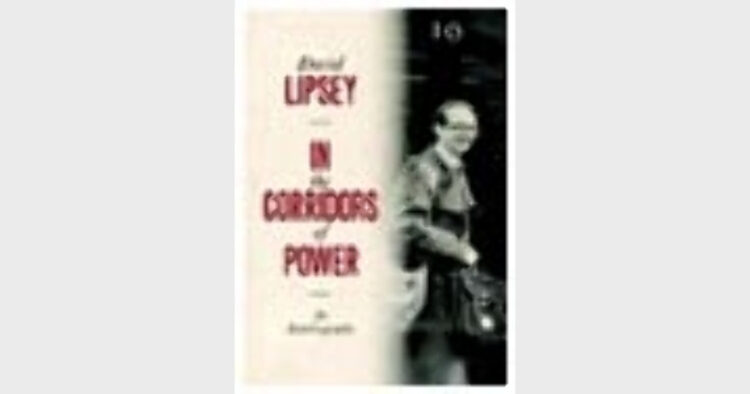Dr R Balashankar
In the Corridors of Power: An Autobiography, David Lipsey, Biteback Publishing Ltd, Pp 312 (HB), £25
A politician, a bureaucrat and a journalist — all three are rolled into one life. That is the introduction to David Lipsey. His autobiography In the Corridors of Power is also political history of Britain. After graduating from Oxford, he joined the General and Municipal Workers’ Union Research Department. Brought up in a Socialist family, Lipsey joined Tony Crosland as his chocolate soldier in 1972 when Crosland was the shadow cabinet minister for environment. “Crosland had already impacted on my life. I had read his great work The Future of Socialism in 1968, cutting short my brief sixties flirtation with Marxism and converting me into an egalitarian democratic socialist.” Lipsey built a deep bonding with Crosland, which lasted until the latter’s untimely death, while he was minister in the Labour government.
Lipsey often in the course of the narration points out the changes that have come about in each of the sphere of his experience. “David Watt of the Financial Times and Peter Jenkins of The Guardian were perhaps the doyen of the journalistic class at the time. They would lunch with the Croslands, at home as well as in restaurants, on terms of perfectly free debate. No politicians feared that if they used a good phrase it would appear credited to journalists in their next column. The commentators were part of the political class and had shared interests with it as well as conflicts.”
It was then important for politicians, especially ministers to know their subject. What was most important was how he performed in the House of Commons. If they broadcast once a month, they were satisfied. “That has now changed. It is not uncommon for a politician to race through a dozen studios in a morning, delivering rehearsed soundbites in each. The 24-hour media is on your back the whole time, looking for contradictions between you and your party colleagues. Besides, the modern politician feels he is nothing if he is not in the newspapers. By contrast, speeches in the House, addressed generally to empty benches, go unremarked.” “Perhaps it is no wonder that so many of today’s politicians seem lightweight compared with their forebears. They are so busy rushing around that they have no time to acquire gravitas.” How very true in Indian context too!
After Crosland died in 1979, Lipsey tried working for others but it did not pan out. He joined the Sunday Times. Like every ex-journalist, says Lipsey, he too feels that the trade is not what it used to be. He worked in The Times, and The Economist.
Lipsey was also in the Electoral Reforms Committee. He was a supporter of change in the first past the post system (as practiced in India also). But the alternate voting, as it was called, never took off as they all seemed unviable for some reason or the other. Examining health care and the financing of BBC were his two other inquiries in his political career, which he re-entered in the late nineties. He discusses each of these in details in separate chapters. He received a peerage and became Lord in 1999.
Lipsey looks back at life and Britain in the forty years he had been engaged with in different capacities. He sees changes, naturally, and not always for the better. After EU membership the British parliament is no longer supreme. The devolution of Scotland and Wales has happened. The reforms in the House of Lords have seen the end of peerage by heredity. “A fourth, regarded as hugely important by most people with direct experience in government, is the change, amounting almost to quasi-eclipse, in the civil service and its power… the power balance between civil servants, ministers and civil society has shifted against the civil service.” The era of coalition governments has come in.
“I started life knowing for certain that I wanted to be a politician. By the early 1980s I was certain I didn’t”, says Lipsey. Being a politician is not easy. Being a successful politician is incredibly hard according to him.
In an eventful life, lived mostly close to action, either as a participant or as an observer, Lipsey has lots to offer to the readers. There is very little of his personal life, except a few references here and there. He is generous with praises for people whom he worked with, not one harsh word against anybody and about himself he is modest. These add charm to the book.
(Biteback Publishing Ltd, Westminster Tower, 3 Albert Embankment, London SE1 7SP)














Comments